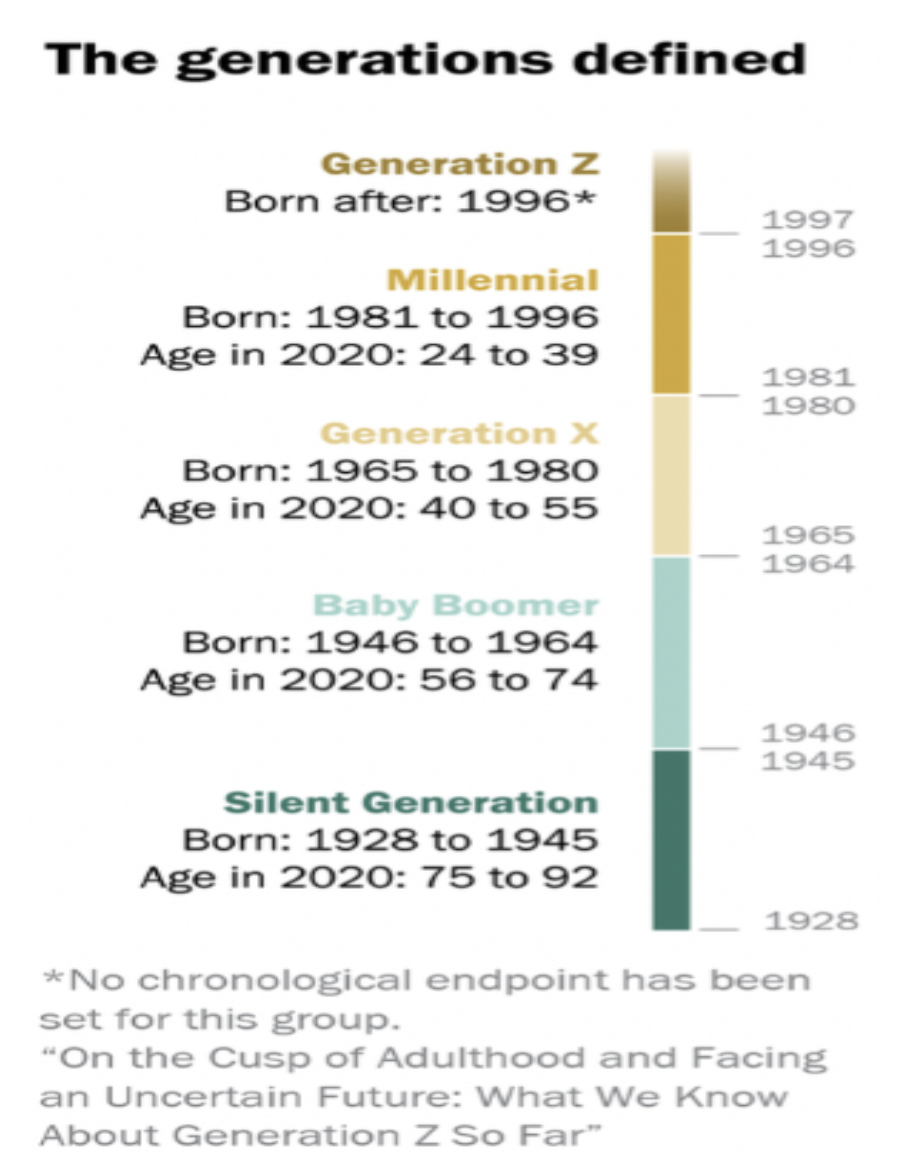As the tides of time shape the economic landscape, each generation grapples with distinct challenges on the path to financial security. While previous generations had their share of hurdles, Gen Z finds themselves facing an unprecedented set of obstacles when it comes to planning for retirement.
The instability of traditional employment structures has cast a shadow over the conventional approach to retirement planning. Unlike their predecessors, who often enjoyed stable, long-term employment and had company-sponsored pension plans, Gen Z navigates a gig economy characterized by short-term contracts and freelance opportunities. This lack of job security makes it challenging for them to envision a stable financial future, let alone plan for retirement.
In addition, Gen Z and millennials feel more stressed about their finances than other groups, said John Carroll, senior vice president and head of insurance and annuities, U.S. and Canada, LIMRA and LOMA. In general, Carroll said, baby boomers have done OK, and Gen X is doing pretty well. But young adults tend to worry more about their finances and about “things” in general and are also concerned about job security. To make things worse, social media, which the older groups did not have, is amplifying the bad news that is out there.
See also: Strategic Guide to Unlocking 'Gen Zalpha'

The rising cost of education serves as another formidable barrier for Gen Z. Faced with astronomical student loan debt, young professionals are forced to prioritize debt repayment over contributing to retirement funds. The burden of educational loans delays the onset of saving for the future and may limit their ability to build a robust retirement nest egg.
The volatile nature of financial markets adds an additional layer of complexity for Gen Z. Traditional investment strategies that served previous generations may no longer be as reliable. The rapid evolution of technology and the advent of cryptocurrencies introduce a level of uncertainty that demands a new approach to investment. Gen Z, often characterized by a preference for digital solutions, may find it challenging to navigate these complex financial landscapes without the guidance of established financial norms.
The concept of retirement itself is evolving. Gen Z, known for their adaptability and inclination toward experiences rather than possessions, may not subscribe to the traditional idea of retiring at a certain age. The changing nature of work and the desire for a more balanced life may lead Gen Z to pursue alternative models, such as phased retirement or continued involvement in the gig economy post-formal retirement age.
The environmental and social consciousness of Gen Z further shapes their retirement aspirations. The prioritization of values like sustainability and social impact prompts them to seek retirement options that align with their ethical beliefs. This shift requires the financial industry to adapt and offer retirement plans that integrate environmental, social, and governance (ESG) factors, ensuring a seamless convergence of personal values and financial strategies.
The digital age, while providing Gen Z with unprecedented access to information, also introduces new challenges in terms of managing and securing their financial futures. The prevalence of online platforms and digital assets raises questions about the security and longevity of their financial investments. As the boundaries between physical and digital assets blur, Gen Z must grapple with the task of safeguarding their wealth in an increasingly connected world.
See also: Rethinking Insurance With a Gen Z/Millennial Mindset
How to address these challenges?
Financial institutions need to revolutionize their approach to financial and retirement planning to attract Gen Z. Tailored financial education programs that cater to the unique circumstances of Gen Z can empower them with the knowledge and skills necessary to navigate the complexities of the modern financial landscape. Having flexibility in retirement plans, acknowledging the dynamic nature of employment and accommodating non-traditional retirement goals will be crucial in capturing the attention and trust of Gen Z.
Here are a few tips I would like to give Gen Z:
- Start small: You don't need to invest a lot of money to get started. Sign up for a term insurance policy as soon as you can
- Set up a regular investment plan: One of the best ways to save for retirement is to set up a regular investment plan.
- Increase your contributions over time: As your income increases, try to increase your retirement contributions.
Conclusion
Despite the growth in life insurance premium from 2021 through 2023, the gap in the number of young adults who say they need life insurance and those who actually own life insurance has been growing, said Alison Salka, senior vice president and head of research, LIMRA and LOMA. “We conduct the Insurance Barometer Study each year with Life Happens, and in general, the need gap has been growing, especially among younger groups, “ Salka said. Only 40% of Gen Z have life insurance, presenting a great opportunity to reach out to them.
The hurdles Gen Z faces in planning for retirement are a reflection of the rapidly changing economic, social and technological landscapes. As they navigate through gig economies, educational debts and the evolving nature of work, Gen Z finds traditional retirement paradigms increasingly irrelevant. Financial institutions and policymakers must adapt to these shifting dynamics, crafting innovative solutions that align with the values and aspirations of Gen Z. Only through a collaborative effort can we pave the way for a retirement future that meets the unique needs of this generation.






